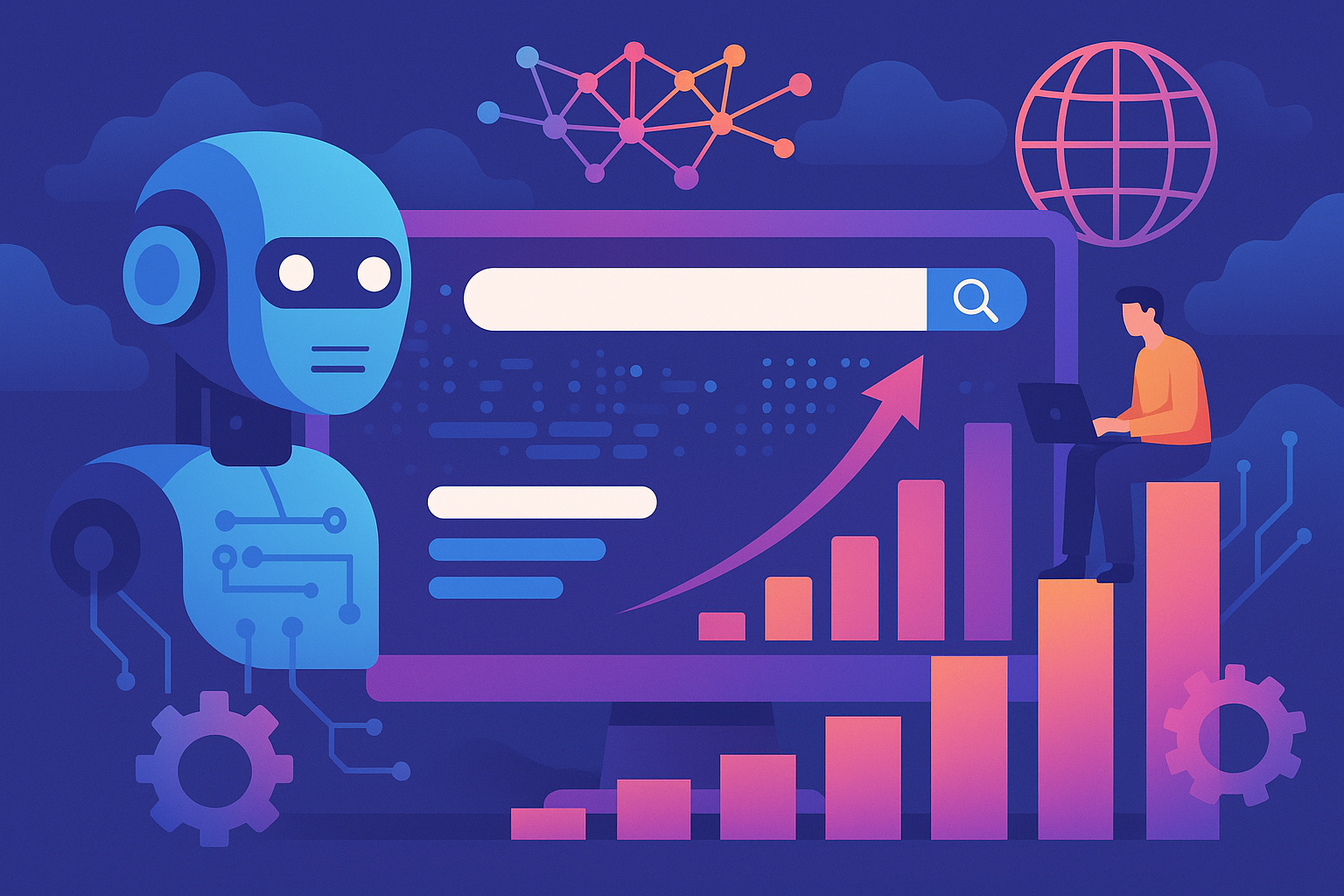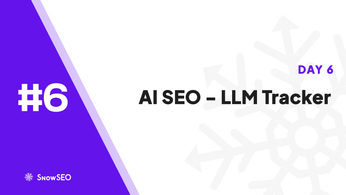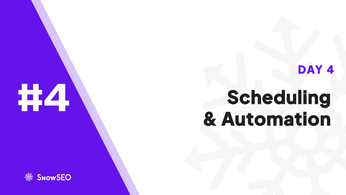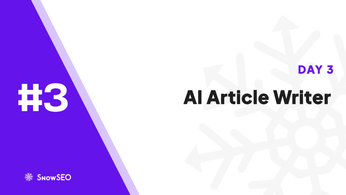
2025's Latest SEO & AI Techniques Revealed
Table of Contents
Discover how AI is transforming SEO in 2025. As search engines evolve, many struggle to keep pace with rapid SEO changes. This article explores the latest techniques, offering insights from industry experts to help you gain a competitive edge. Notably, the emergence of Generative Engine Optimization (GEO) highlights the shift towards AI-driven content strategies. (en.wikipedia.org)
Understanding 2025’s SEO Landscape
Current Trends and Insights
The SEO landscape in 2025 is undergoing a significant transformation, primarily driven by the integration of generative artificial intelligence (GenAI) into search engines. This evolution has given rise to Generative Engine Optimization (GEO), a practice focused on enhancing content visibility within AI-generated responses. Unlike traditional SEO, which emphasizes keyword optimization and backlink strategies, GEO concentrates on influencing how large language models retrieve and present information. The term “generative engine optimization” was first introduced in November 2023 by six researchers in an academic paper, highlighting the need for content creators to adapt to this new paradigm. (en.wikipedia.org)
In this context, search engines are evolving from link-based models to context-driven platforms that deliver synthesized answers directly to user queries. This shift necessitates a reevaluation of content strategies to ensure prominence in AI-generated results. Metrics such as the Generative Appearance Score and Share of AI Voice are emerging as critical indicators of success, reflecting the frequency and prominence of a source within AI-generated responses. (en.wikipedia.org)
To effectively navigate this new SEO environment, content creators must focus on:
- Contextual Relevance: Crafting content that aligns with the nuanced understanding of AI models.
- Structured Data: Implementing schema markup to aid AI in accurately interpreting content.
- Authority Building: Establishing credibility through high-quality, informative content that AI deems trustworthy.
By embracing these strategies, businesses can enhance their visibility in AI-driven search results, ensuring they remain competitive in the evolving digital landscape.

How AI is Reshaping SEO Strategies
Artificial Intelligence (AI) is fundamentally transforming Search Engine Optimization (SEO), shifting from traditional keyword-centric approaches to more sophisticated, context-aware strategies. This evolution is driven by AI’s ability to process and interpret vast amounts of data, enabling search engines to deliver more accurate and personalized results.
AI-Powered Tools in Action
AI’s integration into SEO has led to the development of advanced tools that enhance content optimization and user engagement. For instance, AI algorithms can analyze user behavior and preferences, allowing for the creation of content that aligns closely with audience interests. This not only improves search rankings but also enhances user satisfaction.
Moreover, AI facilitates the automation of routine SEO tasks such as keyword research, content analysis, and performance tracking. This automation allows SEO professionals to focus on strategic planning and creative endeavors, thereby increasing overall efficiency.
Challenges and Opportunities
While AI offers numerous advantages in SEO, it also presents certain challenges. One significant concern is the potential for AI-generated content to lack authenticity or to propagate misinformation if not properly monitored. Ensuring the quality and reliability of AI-driven content requires continuous oversight and refinement.
Additionally, the rapid evolution of AI technologies necessitates ongoing education and adaptation for SEO professionals. Staying abreast of AI developments and understanding their implications for SEO is crucial to maintaining a competitive edge.
However, these challenges are accompanied by substantial opportunities. AI enables more precise targeting and personalization, allowing businesses to deliver content that resonates deeply with their audience. This personalized approach can lead to higher engagement rates and improved conversion metrics.
In conclusion, AI is reshaping SEO by introducing advanced tools and methodologies that enhance content relevance and user experience. Embracing these AI-driven strategies is essential for businesses aiming to thrive in the dynamic digital landscape.
Predicting Future SEO and AI Trends
As we advance into 2025, the integration of Artificial Intelligence (AI) into Search Engine Optimization (SEO) is reshaping digital marketing strategies. Understanding these evolving trends is crucial for businesses aiming to maintain a competitive edge in the digital landscape.
Emerging Techniques and Tools
Generative Engine Optimization (GEO): A notable development in SEO is the emergence of Generative Engine Optimization (GEO). Introduced in 2023, GEO focuses on optimizing content for AI-driven search results and generative AI responses. Unlike traditional SEO, which targets conventional search engines, GEO aims to enhance visibility within AI-powered systems that generate synthesized answers. Techniques such as implementing llms.txt files, incorporating AI-specific metadata, and structuring content to align with AI algorithms are becoming essential. These strategies are designed to increase the likelihood of content being cited or integrated into AI-generated responses. (en.wikipedia.org)
AI-Powered Content Creation and Analysis: The use of AI in content creation is becoming more sophisticated. AI tools can now generate high-quality, contextually relevant content, analyze user engagement metrics, and provide insights for content optimization. This allows for more personalized and effective content strategies, enhancing user experience and engagement.
Enhanced User Experience through AI: AI is also improving user experience by enabling more intuitive website navigation, personalized content recommendations, and efficient customer service through chatbots. These enhancements not only improve user satisfaction but also contribute to better SEO performance by increasing dwell time and reducing bounce rates.

Preparing Your Strategy
Adapting to AI-Driven Search Algorithms: To stay ahead, businesses must adapt their SEO strategies to align with AI-driven search algorithms. This involves understanding how AI interprets and ranks content, focusing on semantic search optimization, and ensuring content relevance and quality.
Investing in AI Tools and Training: Investing in AI-powered SEO tools can provide valuable insights into keyword trends, competitor analysis, and content performance. Additionally, training teams to effectively use these tools and understand AI’s role in SEO is essential for successful implementation.
Emphasizing Ethical AI Practices: As AI becomes more integrated into SEO, it’s important to emphasize ethical practices. This includes ensuring transparency in AI-generated content, avoiding manipulation of AI algorithms, and respecting user privacy.
By embracing these emerging techniques and tools, and preparing strategies that align with AI advancements, businesses can effectively navigate the evolving landscape of SEO in 2025 and beyond.
Ready to elevate your SEO and AI strategy? Discover how SnowSEO automates ranking, content, and AI optimization for 2025’s challenges. Explore AI tools for your strategy at snowseo.com today.
Frequently Asked Questions
Q1: What is Generative Engine Optimization (GEO)?
Generative Engine Optimization (GEO) is a digital marketing strategy aimed at enhancing content visibility within responses generated by AI platforms like ChatGPT and Google Gemini. Unlike traditional SEO, which focuses on improving rankings in search engine results pages, GEO targets the optimization of content to be favorably processed and presented by generative AI models. This involves understanding how these models retrieve and synthesize information to ensure content is accurately and prominently featured in AI-generated outputs. (en.wikipedia.org)
Q2: How does AI impact traditional SEO practices?
AI significantly transforms traditional SEO by shifting from link-based to context-based models that deliver immediate, synthesized responses. This evolution necessitates adapting SEO strategies to align with AI’s ability to understand and generate human-like text, emphasizing the importance of high-quality, contextually relevant content. As AI continues to evolve, staying informed about these changes is crucial for maintaining digital visibility. (en.wikipedia.org)
Q3: What are the challenges of integrating AI into SEO?
Integrating AI into SEO presents challenges such as ensuring content aligns with AI algorithms’ understanding, maintaining content authenticity, and adapting to rapidly evolving AI technologies. Additionally, there’s a need for continuous learning to keep pace with AI advancements and to effectively leverage AI tools for content optimization. Balancing AI integration with human oversight is essential to maintain content quality and relevance. (en.wikipedia.org)
Conclusion
The SEO landscape in 2025 demands adaptability, with AI-driven strategies reshaping how we optimize and analyze content. Leveraging advanced tools and staying informed through reputable sources like Wikipedia’s overview of SEO ensures you’re prepared for ongoing changes. Explore innovative AI solutions and visit our resource center for comprehensive guides to elevate your digital strategy.





